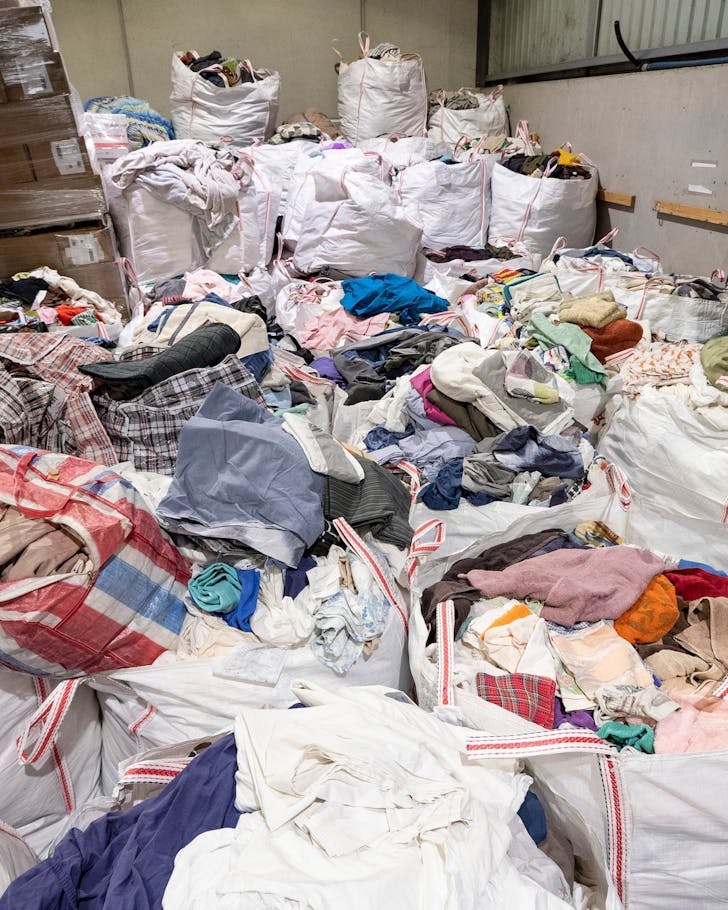Here’s What To Do With Your Cloth Masks Now Government Mandates Are Changing
Despite growing awareness of the issue, textile waste is a huge problem in Australia, with every Aussie contributing an average of 23 kilograms to landfill annually according to the Department of Agriculture, Water and the Environment. Some organisations, like the Australasian Circular Textile Association, reckon that is a serious underestimation.
While there have been changes in messaging throughout the pandemic around which mask is best, it’s safe to say that most of us have a collection of cloth masks that we won’t need so regularly in the future now state mask mandates are changing.
So, what can we do with our surplus of cloth masks to avoid them seeing out their days in landfill? We’ve found five ways to minimise the impact your mask will have on the environment amidst Australia’s big textile-waste crisis.
Donate To A Textile Recycling Program
While you can’t just drop textiles in with regular recycling, there are a few ways to save your cloth masks from going to landfill. Melbourne company Upparel is turning old garments, bed linen, drapery and, yep, cloth and neoprene masks into the likes of roof tiles, office partitions and stuffing for pet beds. You can arrange for a box (so maybe collect unwanted cloth masks from colleagues, friends and family) to be picked Australia-wide from $25, which you can then redeem on their funky socks spun from recycled cotton.
You can also donate your clean cloth masks at Zara and H&M, which collect unwanted textiles and send them on to partner plants to recycle into new garments or turn into industrial products like insulation.

Add Your Cloth Masks To Compost
Most cloth masks are made of cotton, bamboo, hemp, silk and linen, meaning they can be added to your regular compost. Just remove non-biodegradable bits like tags or elastic straps before shredding them up into smaller pieces to help the process along. The worm, bug, and microorganism friends in your compost will love the addition of some good old natural fibres.
Donate Or Repurpose
If you’ve decided you don’t need to keep all your cloth masks in commission, save them to use as rags for household tasks like metal or shoe polishing. You can also ask local wildlife or animal shelters if they can take them to pad out crates and kennels, or see if crafting groups or classes could up-cycle them into a patchwork creation.
Keep A Few
It’s safe to say that masks are part of the new normal, so make sure you do actually keep a couple for travel or when you’re next unwell. Remember that masks aren’t just about keeping you safe, they’re about being considerate of those around you, and have been cultural norms in other countries for decades.
Dispose Of Your Masks Responsibly
If you do decide to throw out your masks (cloth or disposable), make sure you snip the bands. While they’ll most likely make it to landfill, there’s always the chance wildlife could come across them and get entangled.
